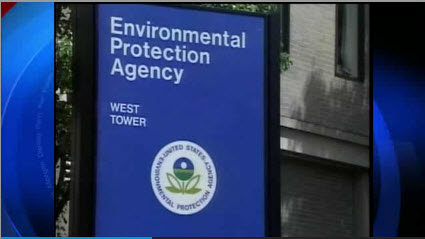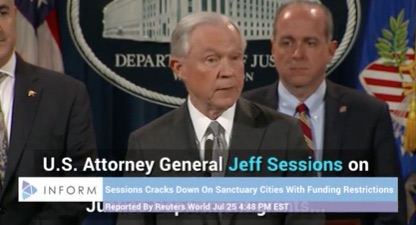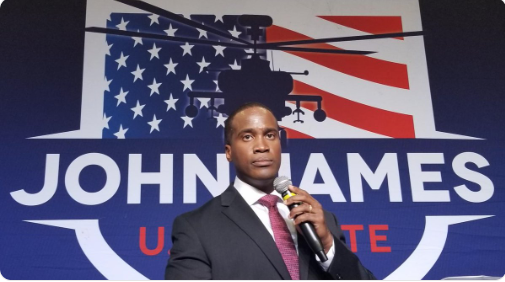Commentary: The EPA’s Coming Energy Catastrophe
By Rich Nolan

Will this presidential election be the most important in American history?
Commentary by Rich Nolan originally published by RealClearEnergy and RealClearWire
The nation’s electric grid experts and operators now work in a constant state of emergency. There’s little if any respite in the change of seasons. Fears of soaring electricity demand overwhelming power supplies during searing summer heat are now matched by an equally unnerving fear millions will be left shivering in darkness during the coldest days of winter.
The question is no longer will there be rolling blackouts or grid emergencies but rather when or where.
This week, the Federal Energy Regulatory Commission (FERC) is taking up the issue of grid reliability at a technical conference, pulling together some of the nation’s key stakeholders on the issue. This is an extraordinarily important opportunity to shed light on a catastrophe in the making and the policy decisions driving it.
Warnings over the threat posed by the loss of dispatchable sources of generation – namely fuel-secure coal power – have reached a crescendo over the past few months. And while the experts charged with keeping the heat and lights on have begged for policy relief, they’re getting just the opposite.
The U.S. Environmental Protection Agency’s (EPA) regulatory agenda is making an alarmingly dangerous situation all but untenable.
EPA has launched a blitz of rulemakings at the U.S. coal and gas power plant fleets that threatens to dismantle 60% of the nation’s power supply nearly overnight. The U.S. coal fleet – a grid reliability backstop that regularly fills power supply gaps when other sources cannot, particularly during biting cold – is facing six rules designed to work in unison to accelerate plant closures.
Headlining this blitz is the so-called Clean Power Plan 2.0. The proposed rule would force coal and gas plant owners to make decisions almost immediately about the future of their plants and the adoption of technologies that – despite EPA’s claims otherwise – are nowhere near ready for commercial deployment. EPA’s mandate is a barely camouflaged order to close plants.
Grid operators, utilities, electric co-ops and even the nation’s federal energy regulators have made it abundantly clear that while the nation has been teetering on the edge of catastrophe, EPA’s agenda – if fully enacted – will likely be the dreaded push over the edge.
FERC Chairman Willie Phillips, handpicked by the Biden administration, recently told Congress, “I am extremely concerned about the pace of retirements we are seeing of generators which are needed for reliability.”
Jim Robb, the president and CEO of North American Electric Reliability Corporation, was asked during Congressional testimony if the generating capacity EPA’s regulatory agenda is forcing off the grid can be sufficiently replaced without incurring reliability impacts. He said, “Not in the timeframe we’re looking at. No.” He added, “Interagency coordination is absolutely needed for policies that impact generation, especially coal resources, to keep reliability at the forefront of the policy table.”
But interagency coordination – especially the robust collaborative work needed to evaluate the cumulative impact EPA’s rulemakings will have on grid reliability and resource adequacy – simply hasn’t happened. EPA has frankly rebuffed the expertise of the nation’s foremost reliability experts.
In fact, while EPA claimed it consulted FERC over the reliability impact of the proposed Clean Power Plan 2.0, commissioner James Danly submitted a blistering letter to the agency correcting the record. “The EPA did not consult the Commission,” he wrote. “I was not asked what I thought of the Proposed Rule’s effects on electric reliability, and I am not aware of my fellow commissioners having had their feedback solicited.”
Danly requested that EPA extend the comment period for the rule to wait for FERC’s reliability conference to help inform EPA’s administrative record. He wrote, “until the record of FERC’s technical conference is submitted in the docket, the EPA will lack the record evidence necessary to make an informed decision.”
Despite his letter and warning – and Congressional oversight expressing strong concerns at the lack of interagency coordination and a true cumulative impact analysis – EPA closed the comment period, only underscoring the agency’s dangerous nonchalance over the impact of its rulemakings.
FERC now has a chance to publicly hold EPA’s plans to account.
It’s past time the nation’s reliability regulators address the cumulative impact of EPA’s rulemakings and make the Biden administration answer to the danger posed by its regulatory onslaught.
The reliability of the nation’s power supply hangs in the balance. If EPA is unwilling to change course and recognize the threat posed by its rulemakings, FERC, Congress and the states must step in. The stakes are too large. It is common sense that the nation’s foremost reliability experts – not the EPA – should have the final say over the reliability and security of the nation’s supply of electricity.
__________
Rich Nolan is president and CEO of the National Mining Association.
This article was originally published by RealClearEnergy and made available via RealClearWire.








